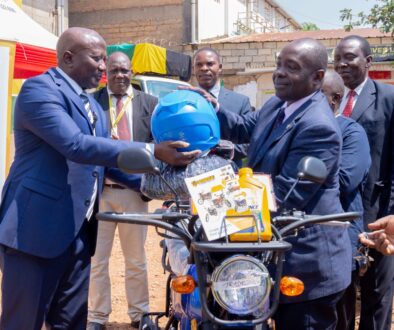URA expands EFRIS compliance to 12 more business sectors

URA Commissioner General John R. Musinguzi.
The Uganda Revenue Authority (URA) has broadened its electronic tax compliance (EFRIS) to 12 additional sectors, a move that will require a wider range of businesses to issue authenticated electronic receipts and invoices.
The directive, which takes effect on July 1, 2025, was issued by Commissioner General John R. Musinguzi. It is part of a broader effort to close tax loopholes and improve compliance across the country.
New sectors affected include; Wholesale and retail of fuel, Mining and quarrying, Manufacturing, Electricity, gas, steam and air conditioning supply, Water supply, sewerage, waste management and remediation, Construction, Transportation and storage, Accommodation and food service activities, Information, technology and communication, Real estate, Professional, scientific and technical activities and Arts, entertainment and recreation
The URA warned that any business failing to comply will be subject to a penal tax equal to twice the amount of tax due on the transaction.
EFRIS was first implemented in 2021 to electronically capture all business transactions and transmit the data in real-time to the URA. While the tax body credits the system with improving VAT compliance and boosting revenue collection, it has faced opposition from some traders over implementation costs and complexity.
In a public notice, Musinguzi stated that the measure will “enhance transparency, promote fair competition, and improve service delivery to compliant taxpayers,” as the URA seeks to improve reporting in key economic sectors that have historically been prone to under-declaration.



